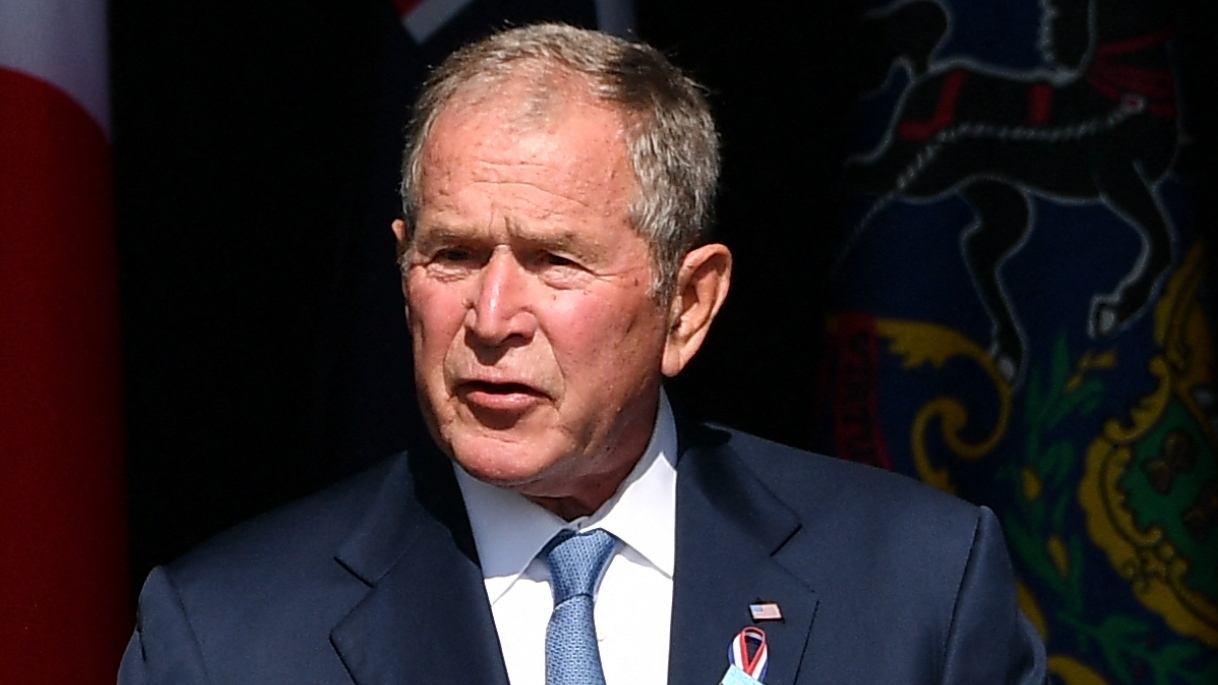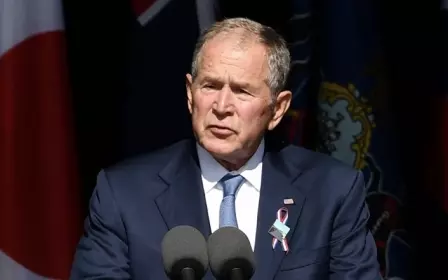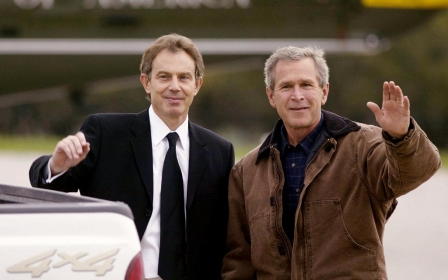Islamic State group-linked operative plotted to assassinate George W Bush in US, report says

An alleged Islamic State (IS) group-linked operative in the US was plotting to kill George W Bush, according to a report by Forbes citing an FBI search warrant application unsealed this week in a federal court.
The FBI said it uncovered the scheme through the work of two confidential informants and surveillance of the alleged plotter's account on the Meta-owned WhatsApp messaging platform.
The suspect, based in Columbus, Ohio, went as far as travelling to Dallas, Texas, in November to take video around the former president's home, and recruited help from a team he hoped to smuggle into the country via Mexico.
The individual, who was not named in the report by Forbes, said he wanted to assassinate Bush because he felt the former president was responsible for killing Iraqis and breaking apart the country after the 2003 US military invasion, according to the warrant.
According to Forbes, the alleged plot organiser - who claimed to be part of a unit called "Al-Raed" that was led by a former Iraqi pilot based out of Qatar until his death - had been in the US since 2020 and had an asylum application pending.
Federal agents used two different confidential sources to investigate the plot, one person who claimed to offer assistance in obtaining false documents, and another who was a purported customer of the alleged people smuggler.
In November 2021, the suspect revealed to the FBI insider the assassination plot and asked if he knew how to "obtain replica or fraudulent police and/or FBI identifications and badges" to help carry out the killing.
The suspect said he was planning to get four male Iraqi nationals located in Iraq, Turkey, Egypt and Denmark into the US, according to the warrant, and claimed that one of them was "the secretary of an ISIS financial minister".
He described the men as "former Baath Party members in Iraq who did not agree with the current Iraqi government". The Baath Party was the political party of former Iraqi President Saddam Hussein, who was deposed in the 2003 US invasion.
The suspect also said he wanted to find and assassinate a former Iraqi general who helped Americans during the war and whom he believed was living in the US.
Also in the FBI court filing, the suspect claimed to be a member of "the resistance" and had killed many Americans in Iraq between 2003 and 2006.
WhatsApp tracking
The case highlights how the FBI, despite claiming that Meta and other tech providers' use of encryption blocks the agency's investigations, has been able to work around WhatsApp security parameters through the use of informants and tracking the metadata obtained from the messaging platform.
The bureau used what is known as a "pen register" - an electronic device that records all numbers reached from a certain account - on the WhatsApp account believed to belong to the suspect. He was also given a phone by one of the FBI informants, which allowed the FBI to track him.
An FBI informant noted that the suspect was a member of Baath and IS chat groups on WhatsApp. The suspect claimed to have "been in recent communications with a friend in Qatar who was a former minister in Iraq under Saddam Hussein who had access to large quantities of money" and was messaging him over WhatsApp, the FBI said.
In one conversation from December, the suspect claimed to have had just smuggled two individuals associated with Hezbollah, a Lebanon-based group that is deemed a terrorist organisation by Washington, into the US for a fee of $50,000 each.
Middle East Eye reached out to the Justice Department and the office of former President Bush for comment, but neither responded.
Bush, a former US president from the Republican Party from 2001 to 2009, was in the news last week when he inadvertently referred to the US invasion of Iraq as "a wholly unjustified and brutal invasion" during a speech about the Russian invasion of Ukraine.
According to the Brown University's Costs of War Project, an estimated number between 184,000 and 207,000 civilians died from direct war-related violence caused either by the US, its allies, the Iraqi military and police, or opposition forces from the time of the invasion of Iraq through October 2019.
This article is available in French on Middle East Eye French edition.
Middle East Eye propose une couverture et une analyse indépendantes et incomparables du Moyen-Orient, de l’Afrique du Nord et d’autres régions du monde. Pour en savoir plus sur la reprise de ce contenu et les frais qui s’appliquent, veuillez remplir ce formulaire [en anglais]. Pour en savoir plus sur MEE, cliquez ici [en anglais].





